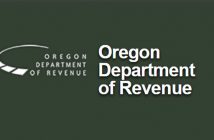If you have a 401(k) plan at work, consider yourself fortunate. There are many benefits to contributing to a 401(k) plan. You typically contribute pre-tax dollars to your 401(k), so the more you put in, the lower your taxable income. Additionally, your earnings grow on a tax-deferred basis. Furthermore, your 401(k) provides you with a variety of investment options, so you can diversify your account. All in all, a 401(k) is a great way to save for retirement. But to get the most out of your plan, you will need to be aware of changes that affect it — and some of those changes will show up this year.
Here Are A Few To Consider
Higher contribution limits — In 2012, you can contribute up to $17,000 to your 401(k), up from $16,500 in 2011. And if you are 50 or older, you can put in an additional amount — up to $5,500 — as a “catch-up” contribution. These same limits also apply to 403(b) plans (if you work for a school or other tax-exempt organization) and 457(b) plans (if you work for a state or local government). Of course, you might not be able to contribute the maximum amount to your 401(k) or similar plan, but it is advisable to put in as much as you can afford. And every time your salary goes up, boost your annual contribution. Over time, even small increases in the sums you put in each year can make a big difference in the total amount you have available for retirement.
401(k) fee disclosures — Effective May 31, 2012, Labor Department regulations require most employers to disclose 401(k) plan fees, along with costs associated with each investment option. As a result, some employers may seek lower-cost investment options, which could affect the investment choices available to you. Watch for communications from your employer regarding these choices. You may also want to consult with your financial advisor to determine what changes, if any, you may need to make to your 401(k)’s investment mix, given the possible addition of new investments or the elimination of previous choices. At the same time, you might want to evaluate the overall performance of your 401(k) to see if you need to make any other adjustments, given your risk tolerance and time horizon. Generally speaking, it is a good idea to review your 401(k) at least once a year to determine how well it is meeting your expectations and objectives.
Reinstatement of matching contributions — During the economic downturn, many employers suspended their matching contributions to their employees’ 401(k) plans. But now, quite a few of these companies are reinstating these contributions. If your employer is doing the same, make sure you’re putting in enough to your 401(k) to at least earn the match. Otherwise, you are literally “leaving money on the table.”
It’s not unusual to see changes in your 401(k) plan from one year to the next. By staying current on these changes, you will be better able to maximize the benefits of your 401(k) — and the more effectively you use your 401(k), the greater your chances of enjoying the retirement lifestyle you have envisioned.
This article is provided by Pamela J. Carty, Accredited Wealth Manager, a Financial Advisor at RBC Wealth Management in Bend, Oregon, and was prepared by or in cooperation with RBC Wealth Management. The information included in this article is not intended to be used as the primary basis for making investment decisions nor should it be construed as a recommendation to buy or sell any specific security. RBC Wealth Management does not endorse this organization or publication. Consult your investment professional for additional information and guidance. RBC Wealth Management does not provide tax or legal advice.
RBC Wealth Management, a division of RBC Capital Markets LLC, Member NYSE/FINRA/SIPC.




